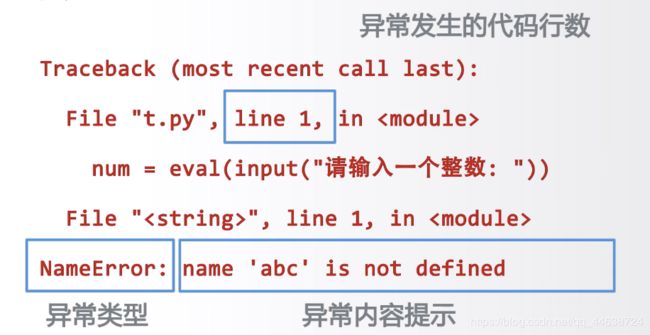- Python:每日一题之错误票据
努力的敲码工
蓝桥杯每日一题python蓝桥杯
题目描述某涉密单位下发了某种票据,并要在年终全部收回。每张票据有唯一的ID号。全年所有票据的ID号是连续的,但ID的开始数码是随机选定的。因为工作人员疏忽,在录入ID号的时候发生了一处错误,造成了某个ID断号,另外一个ID重号。你的任务是通过编程,找出断号的ID和重号的ID。假设断号不可能发生在最大和最小号。输入描述输入描述要求程序首先输入一个整数N(N<100)表示后面数据行数。接着读入N行数据
- Python控制批量插入Catia文件并修改文件定义及PN
一盘红烧肉
python
改了两天,总算初步摸清楚了Catia中的文件结构,实现了使用Python控制批量修改文件名及定义使用Pycatia在Product中插入Part并改名及定义
- PySide2是 Qt 库的 Python 绑定之一
WwwwwH_PLUS
#Qtqtpython开发语言
PySide2是Qt库的Python绑定之一,它为Python程序员提供了创建跨平台桌面应用程序的工具和功能。PySide2是Qt5.x系列的Python绑定,而Qt本身是一个跨平台的图形用户界面(GUI)框架,广泛用于开发各种类型的桌面应用程序,包括多种平台(Windows、Linux、macOS)的应用。主要特点跨平台支持:PySide2可以在Windows、Linux和macOS上运行,允许
- Python学习第十一天
Leo来编程
Python学习python
疑惑:有很多人不知道是不是也分不清什么是单核?什么是多核?什么是时间片?进程?线程?那么在讲进程和线程前我先举个例子更好理解这些概念。单核例子:比如你是一个厨师(计算机)在一个厨房(CPU)里需要同时做3个菜(进程)、每个菜需要准备不同的调料以及协作(线程),那么这个厨师需要不断地切换时间(时间片)来达到同时在一个时间将三个菜做完。多核的话其实对应的例子就是多个厨师,这样的例子太多了因为万物皆对象
- python学习第三天
Leo来编程
Python学习python开发语言
条件判断条件判断使用if、elif和else关键字。它们用于根据条件执行不同的代码块。#条件判断age=18ifage0:#也可以写if(s>0)但是没必要因为python给个提示建议去掉保证代码的按照缩进来进行更加规范print("这个数字是大于0的数字!")#这行代码属于if语句的代码块elifs==0:print("这个数字是等于0的数字!")#这行代码属于elif语句的代码块else:pr
- 三种优化算法
旅者时光
算法算法python开发语言
本文将总结遗传算法、粒子群算法、模拟退火三种优化算法的核心思路,并使用python完整实现。实际上,越来越多的优秀算法已经被封装为一个易用的接口。很多时候,一行代码就能实现我们的需求。但了解这些算法的基本逻辑,能够使用最基本的代码实现它。无论对于提升我们的编程能力还是解决问题的能力,都会大有裨益。甚至,改变我们思考问题的方式。1、遗传算法遗传算法,顾名思义,就是借鉴了生物通过遗传变异来逐渐适应环境
- 使用 Python 合并微信与支付宝账单,生成财务报告
python后端
最近用思源笔记记东西上瘾,突然想每个月存一份收支记录进去。但手动整理账单太麻烦了,支付宝导出一份CSV,微信又导出一份,格式还不一样,每次复制粘贴头都大。干脆写了个Python脚本一键处理,核心就干两件事:把俩平台的CSV账单合并到一起自动生成带分类表格的Markdown(直接拖进思源就能渲染)代码主要折腾了这些:支付宝账单前24行都是废话,直接skiprows=24跳过去,GBK编码差点让我栽跟
- Python Flask 在网页应用程序中处理错误和异常
dowhileprogramming
pythonflask开发语言
PythonFlask在网页应用程序中处理错误和异常PythonFlask在网页应用程序中处理错误和异常PythonFlask在网页应用程序中处理错误和异常在我们所有的代码示例中,我们没有注意如何处理用户在浏览器中输入错误的URL或向我们的应用程序发送错误的参数集的情况。这不是设计意图,但目的是首先关注网页应用程序的关键组件。网页框架的美妙之处在于,它们通常默认支持错误处理。如果发生任何错误,将自
- 农业生产模拟和农业政策分析:WOFOST模型与PCSE模型安装、运行、数据准备;农田农作物生长模拟和产量预测等
WangYan2022
作物模型农业WOFOST模型PCSE模型农田生态系统作物模型农业生产模拟
WOFOST(WorldFoodStudies)和PCSE(PythonCropSimulationEnvironment)是两个用于农业生产模拟的模型:WOFOST是一个经过多年开发和验证的模型,被广泛用于全球的农业生产模拟和农业政策分析;采用了模块化的结构,可以对不同的农作物和环境条件进行参数化和适应;WOFOST可用于长期模拟,能够模拟整个作物生长周期,包括播种、生长、收获等各个阶段;WOF
- 基于Python+Vue开发的电影订票管理系统源码+运行步骤
冷琴1996
Python系统设计pythonvue.js开发语言
项目简介该项目是基于Python+Vue开发的电影订票管理系统(前后端分离),这是一项为大学生课程设计作业而开发的项目。该系统旨在帮助大学生学习并掌握Python编程技能,同时锻炼他们的项目设计与开发能力。通过学习基于Python的电影订票管理系统项目,大学生可以在实践中学习和提升自己的能力,为以后的职业发展打下坚实基础。技术学习之路主要功能影片管理:管理系统可以录入、修改和查询影片的基本信息,如
- Python通过YOLO格式TXT标签文件在图像中画框
CHERISH_KDX
pythonYOLO人工智能
使用场景检测数据集标注是否有误:在目标检测算法中需要标注自己的数据集,为了更加方便的检查数据集标注是否有误,可以使用该工具将标注结果绘制在图像中并查看。美化识别结果中的检测框:在一些目标检测场景中,YOLO检测算法原始的检测框绘制会导致重叠、颜色冲突、字体过大等问题。可以使用该工具进行修改。代码importosimportcv2classcheck_label:def__init__(self,c
- 基于llama_cpp 调用本地模型(llama)实现基本推理
月光技术杂谈
大模型初探llamallama.cpppythonLLM集成显卡本地模型AI
零基础实践本地推理模型基本应用:基于llama_cpp的本地模型调用。本文先安装llama_cpppython库,再编写程序,利用其调用llama-2-7b-chat.Q4_K_M.ggu模型。背景llama_cpp是一个基于C++的高性能库(llama.cpp)的Python绑定,支持在CPU或GPU上高效运行LLaMA及其衍生模型(如LLaMA2),并通过量化技术(如GGUF格式)优化内存使用
- python实现查找满足条件的数字
qq_恰同学少年
python
问题:一个四位数,知道其前两位和后两位分别相等,并且这个数还是一个平方数,求出这个数。一个四位数,范围只能是1000~9999,前两位和后两位分别相等,也就是说,它的结构应该是aabb。最后,这个数是一个平方数。有的小伙伴可能不知道啥叫平方数,暂且解释下,所谓的平方数就是指该数等于一个整数的平方。比如3的平方是9,那么我们就说9是个平方数。第一步,这是个四位数,前两位和后两位分别相等,我们将满足条
- python中常用的内置模块举例(入门级整理)
qq_恰同学少年
python
python对于初学者可以说是十分友好的一门编程语言,不仅语法简单,而且它自身还包含了十分丰富的第三方模块,我仅就将我自己常用的一些内置模块(自带的,无需安装)做一下简单的总结和介绍:1.turtleturtle,是python中比较好玩一个模块,它有一个专有名称“海龟作图”,光看名字就应该能够猜到它是用来干嘛的,没错,就是来画图的,它可以通过某些语句来控制一个点在白板上的运动轨迹,它在白板上走过
- QPython双核攻略:从零基础到AI开发,你的手机就是全栈训练营
程之编
python开发语言青少年编程人工智能
主题一:《编程小白必看!在手机上种下你的第一行代码》✨北京优趣天下信息技术有限公司重磅出品我们比谁都清楚:✔️86%的初学者因环境配置放弃编程✔️72%的上班族只有碎片化学习时间✔️95%的自学者需要即时答疑支持为什么QPython成为2025现象级学习工具?▸全栈开发环境:解释器+编辑器+控制台三合一▸AI导师常驻:集成DeepSeek代码助手(支持中英双语提问)▸极速学习路径:Q派课程7天完成
- Python学习指南:系统化路径 + 避坑建议
程之编
Python全栈通关秘籍青少年编程python开发语言人工智能机器学习
新手小白学习编程就像搭积木——需要从基础开始,逐步构建知识体系。以下是为你量身定制的Python学习路径,帮你告别杂乱,高效入门!一、学习前的关键认知明确目标:想用Python做什么?数据分析(如Excel自动化、可视化)Web开发(如搭建网站)人工智能(如机器学习)自动化办公(如处理文件、邮件)目标不同,后续学习侧重点不同(但基础通用)。避免误区:❌只看教程不写代码✅边学边动手,哪怕抄代码也要运
- 【Python代码练习(简单应用)】
9...
python汇编前端开发语言dreamweaver
一、Python列表添加与删除元素:append()。在列表末尾添加新的格式元素添加格式:list.append(元素)删除格式:list.remove(元素)例如:#给出代码listA=['水煮千丝','平板豆腐','白烧饭','香菇青菜','西红柿鸡蛋汤']listA._________("红烧肉")listA._________("水煮千丝")print(listA)将“红烧肉”放入列表中,
- 统信uos20:利用docker部署python+jupyterlab开发环境
阆遤
dockerpythonjupytergithubactionsworkflow统信uos20
很多统信uos20计算机没有联网安装python开发环境的条件,但是工作中需要对数据进行分析处理,因而产生了离线部署python开发环境的想法。我首先下载了python3.11的源代码包,在uos中编译居然正常通过。但后续的麻烦来了:需要安装的库没法安装。尝试了一天,最终放弃。改用Docker方式部署,理由就不多解释了。一、在uos中安装docker。我的系统是uos20linux4.19.0-a
- 第五周作业——第十章动手试一试
hongsqi
10-1Python学习笔记学习笔记:在文本编辑器中新建一个文件,写几句话来总结一下你至此学到的Python知识,其中每一行都以“InPythonyoucan”打头。将这个文件命名为learning_python.txt,并将其存储到为完成本章练习而编写的程序所在的目录中。编写一个程序,它读取这个文件,并将你所写的内容打印三次:第一次打印时读取整个文件;第二次打印时遍历文件对象;第三次打印时将各行
- 统信UOS下达梦数据库启动图形界面应用工具monitor报JAVA相关错:An error has occurred. See the log file
LaoYuanPython
老猿Python国产信创之光java达梦数据库统信UOS操作系统JDK图形应用报错
☞░前往老猿Python博客░https://blog.csdn.net/LaoYuanPython一、前言在博文《基于飞腾2000CPU+浪潮电脑+统信UOS安装达梦数据库详解https://blog.csdn.net/LaoYuanPython/article/details/143258863》中介绍了基于飞腾2000CPU+浪潮电脑+统信UOS安装达梦数据库的详细过程,并且安装完毕之后通过
- 整理一下arcGis desktop版本软件, 从入门到精通需要学习的知识点
AnalogElectronic
arcgis学习
整理一下arcGisdesktop版本软件,从入门到精通需要学习的知识点以下是一份关于ArcGISDesktop从入门到精通的学习知识点整理:一、软件初认识与基础操作软件初认识:了解ArcGISDesktop的界面布局,包括内容列表、ArcToolbox工具箱、结果窗口、地图窗口、目录窗口、搜索窗口、python编程窗口以及其他常用工具条等。数据添加与管理:掌握通过不同方式添加数据,如图层列表右键
- 动态规划双剑合璧:C++与Python征服洛谷三大经典DP问题
三流搬砖艺术家
动态规划c++python
动态规划核心思想状态定义→转移方程→边界处理→时空优化本文精选洛谷动态规划题单中三大经典问题,通过C++与Python双语言对比实现,彻底掌握DP精髓!题目一:P1048采药(01背包模板)题目描述在限定时间T内采集草药,每株草药有采集时间time[i]和价值value[i],求最大总价值。解题思路状态定义:dp[j]表示时间j能获得的最大价值转移方程:dp[j]=max(dp[j],dp[j-t
- Python机器学习实战:构建序列到序列(Seq2Seq)模型处理翻译任务
AGI大模型与大数据研究院
程序员提升自我硅基计算碳基计算认知计算生物计算深度学习神经网络大数据AIGCAGILLMJavaPython架构设计Agent程序员实现财富自由
Python机器学习实战:构建序列到序列(Seq2Seq)模型处理翻译任务1.背景介绍1.1问题的由来翻译是跨语言沟通的重要桥梁,随着全球化进程的加速,翻译需求日益增长。传统的机器翻译方法主要依赖于规则和统计方法,如基于短语的翻译、基于统计的机器翻译等。然而,这些方法难以处理复杂的语言现象,翻译质量参差不齐。近年来,随着深度学习技术的快速发展,基于神经网络序列到序列(Sequence-to-Seq
- 20个简单的python代码练习
qq_恰同学少年
python开发语言
下面整理了20个简单的python代码练习,供大家学习交流使用,轻易上手,复制下来就能用!!!废话不多说,直奔主题1.输入一个不超过5位的正整数,输出其逆数。例如输入12345,输出应为54321。a=input('请输入一个不超过5位的正整数:')print('其逆数为:',a[::-1])注:该代码使用了列表的切片和反转操作,首先将这个数的每个位上的数字存储到一个列表中,然后通过列表的反转来得
- Python第十六课:深度学习入门 | 神经网络解密
程之编
Python全栈通关秘籍python神经网络青少年编程
本节目标理解生物神经元与人工神经网络的映射关系掌握激活函数与损失函数的核心作用使用Keras构建手写数字识别模型可视化神经网络的训练过程掌握防止过拟合的基础策略一、神经网络基础(大脑的数字化仿生)1.神经元对比生物神经元人工神经元树突接收信号输入层接收特征数据细胞体整合信号加权求和(∑(权重×输入)+偏置)轴突传递电信号激活函数处理输出2.核心组件解析激活函数:神经元的"开关"(如ReLU:max
- 通过 Ollama 本地部署 DeepSeek-r1:1.5b 模型后,用 Python 调用推理并生成基于 pytest + PO 设计模式的 Playwright 自动化测试文件
Python测试之道
测试提效pythonpythonpytest设计模式
以下是完整的实现步骤和代码示例,详细说明了如何通过Python调用本地部署的DeepSeek-r1:1.5b模型,将功能测试用例转换为适合pytest和PageObject(PO)设计模式的Playwright自动化测试脚本。一、前提条件DeepSeek模型本地部署通过Ollama部署DeepSeek-r1:1.5b模型。Ollama提供的本地推理服务默认可通过HTTPAPI访问,地址通常为:ht
- 【UI自动化】Selenium库中使用By类元素定位方法
搞不来测试的摄影狮
软件测试pythonselenium自动化
使用By类,首先需要在Python中导入该模块:fromselenium.webdriver.common.byimportBy1.通过元素的ID属性来定位driver.find_element(By.ID,'kw')如下图,我们需要定位百度的输入框。首先选中定位工具,然后选中输入框。我们可以看到该元素id的值为:"kw"2.通过元素的NAME属性来定位driver.find_element(By
- DeepSeek + Cline:编程如何加速引擎
meisongqing
人工智能
DeepSeek与Cline的结合为编程工作流提供了显著的加速能力,这种组合通过AI辅助规划、代码生成与优化、实时调试等功能,大幅提升开发效率。以下是具体实现方式及技术要点:一、智能规划与代码生成问题分析与规划(Plan模式)DeepSeek-R1模型擅长处理复杂逻辑推理,开发者可在Cline的Plan模式下用自然语言描述需求(如“用Python实现数据清洗并计算平均值”)。DeepSeek会根据
- Python 变量起名全攻略:新手避坑与大神指南
科雷learning
学习AIpython编程python开发语言
学习AI科雷learning2025年03月10日22:19江苏一、引言:变量起名的“玄学”难题在Python编程的世界里,变量命名看似简单,实则暗藏玄机,常常让新手们踩坑不断。本文将带你深入了解Python变量命名规则,助你从新手小白变身命名大神。二、基础规则:保命口诀要牢记小白的困惑小白:(举着写满报错的代码)大神快看!我就写了个3D效果=True,Python竟然说我语法错误?专家的解答专家
- 聚类分析|k-means聚类方法及其Python实现
皖山文武
数据挖掘商务智能kmeans聚类python数据挖掘机器学习
k-means聚类方法及其Python实现0.k-means算法简介1.k-means算法工作原理2.k-means算法流程3.k–means算法的Python实现0.k-means算法简介k-means算法由MacQueen在1967年提出。是一种经典的基于划分的聚类方法。划分方法(PartitioningMethod)是基于距离判断样本相似度,通过不断迭代将含有多个样本的数据集划分成若干个簇,
- knob UI插件使用
换个号韩国红果果
JavaScriptjsonpknob
图形是用canvas绘制的
js代码
var paras = {
max:800,
min:100,
skin:'tron',//button type
thickness:.3,//button width
width:'200',//define canvas width.,canvas height
displayInput:'tr
- Android+Jquery Mobile学习系列(5)-SQLite数据库
白糖_
JQuery Mobile
目录导航
SQLite是轻量级的、嵌入式的、关系型数据库,目前已经在iPhone、Android等手机系统中使用,SQLite可移植性好,很容易使用,很小,高效而且可靠。
因为Android已经集成了SQLite,所以开发人员无需引入任何JAR包,而且Android也针对SQLite封装了专属的API,调用起来非常快捷方便。
我也是第一次接触S
- impala-2.1.2-CDH5.3.2
dayutianfei
impala
最近在整理impala编译的东西,简单记录几个要点:
根据官网的信息(https://github.com/cloudera/Impala/wiki/How-to-build-Impala):
1. 首次编译impala,推荐使用命令:
${IMPALA_HOME}/buildall.sh -skiptests -build_shared_libs -format
2.仅编译BE
${I
- 求二进制数中1的个数
周凡杨
java算法二进制
解法一:
对于一个正整数如果是偶数,该数的二进制数的最后一位是 0 ,反之若是奇数,则该数的二进制数的最后一位是 1 。因此,可以考虑利用位移、判断奇偶来实现。
public int bitCount(int x){
int count = 0;
while(x!=0){
if(x%2!=0){ /
- spring中hibernate及事务配置
g21121
Hibernate
hibernate的sessionFactory配置:
<!-- hibernate sessionFactory配置 -->
<bean id="sessionFactory"
class="org.springframework.orm.hibernate3.LocalSessionFactoryBean">
<
- log4j.properties 使用
510888780
log4j
log4j.properties 使用
一.参数意义说明
输出级别的种类
ERROR、WARN、INFO、DEBUG
ERROR 为严重错误 主要是程序的错误
WARN 为一般警告,比如session丢失
INFO 为一般要显示的信息,比如登录登出
DEBUG 为程序的调试信息
配置日志信息输出目的地
log4j.appender.appenderName = fully.qua
- Spring mvc-jfreeChart柱图(2)
布衣凌宇
jfreechart
上一篇中生成的图是静态的,这篇将按条件进行搜索,并统计成图表,左面为统计图,右面显示搜索出的结果。
第一步:导包
第二步;配置web.xml(上一篇有代码)
建BarRenderer类用于柱子颜色
import java.awt.Color;
import java.awt.Paint;
import org.jfree.chart.renderer.category.BarR
- 我的spring学习笔记14-容器扩展点之PropertyPlaceholderConfigurer
aijuans
Spring3
PropertyPlaceholderConfigurer是个bean工厂后置处理器的实现,也就是BeanFactoryPostProcessor接口的一个实现。关于BeanFactoryPostProcessor和BeanPostProcessor类似。我会在其他地方介绍。
PropertyPlaceholderConfigurer可以将上下文(配置文件)中的属性值放在另一个单独的标准java
- maven 之 cobertura 简单使用
antlove
maventestunitcoberturareport
1. 创建一个maven项目
2. 创建com.CoberturaStart.java
package com;
public class CoberturaStart {
public void helloEveryone(){
System.out.println("=================================================
- 程序的执行顺序
百合不是茶
JAVA执行顺序
刚在看java核心技术时发现对java的执行顺序不是很明白了,百度一下也没有找到适合自己的资料,所以就简单的回顾一下吧
代码如下;
经典的程序执行面试题
//关于程序执行的顺序
//例如:
//定义一个基类
public class A(){
public A(
- 设置session失效的几种方法
bijian1013
web.xmlsession失效监听器
在系统登录后,都会设置一个当前session失效的时间,以确保在用户长时间不与服务器交互,自动退出登录,销毁session。具体设置很简单,方法有三种:(1)在主页面或者公共页面中加入:session.setMaxInactiveInterval(900);参数900单位是秒,即在没有活动15分钟后,session将失效。这里要注意这个session设置的时间是根据服务器来计算的,而不是客户端。所
- java jvm常用命令工具
bijian1013
javajvm
一.概述
程序运行中经常会遇到各种问题,定位问题时通常需要综合各种信息,如系统日志、堆dump文件、线程dump文件、GC日志等。通过虚拟机监控和诊断工具可以帮忙我们快速获取、分析需要的数据,进而提高问题解决速度。 本文将介绍虚拟机常用监控和问题诊断命令工具的使用方法,主要包含以下工具:
&nbs
- 【Spring框架一】Spring常用注解之Autowired和Resource注解
bit1129
Spring常用注解
Spring自从2.0引入注解的方式取代XML配置的方式来做IOC之后,对Spring一些常用注解的含义行为一直处于比较模糊的状态,写几篇总结下Spring常用的注解。本篇包含的注解有如下几个:
Autowired
Resource
Component
Service
Controller
Transactional
根据它们的功能、目的,可以分为三组,Autow
- mysql 操作遇到safe update mode问题
bitray
update
我并不知道出现这个问题的实际原理,只是通过其他朋友的博客,文章得知的一个解决方案,目前先记录一个解决方法,未来要是真了解以后,还会继续补全.
在mysql5中有一个safe update mode,这个模式让sql操作更加安全,据说要求有where条件,防止全表更新操作.如果必须要进行全表操作,我们可以执行
SET
- nginx_perl试用
ronin47
nginx_perl试用
因为空闲时间比较多,所以在CPAN上乱翻,看到了nginx_perl这个项目(原名Nginx::Engine),现在托管在github.com上。地址见:https://github.com/zzzcpan/nginx-perl
这个模块的目的,是在nginx内置官方perl模块的基础上,实现一系列异步非阻塞的api。用connector/writer/reader完成类似proxy的功能(这里
- java-63-在字符串中删除特定的字符
bylijinnan
java
public class DeleteSpecificChars {
/**
* Q 63 在字符串中删除特定的字符
* 输入两个字符串,从第一字符串中删除第二个字符串中所有的字符。
* 例如,输入”They are students.”和”aeiou”,则删除之后的第一个字符串变成”Thy r stdnts.”
*/
public static voi
- EffectiveJava--创建和销毁对象
ccii
创建和销毁对象
本章内容:
1. 考虑用静态工厂方法代替构造器
2. 遇到多个构造器参数时要考虑用构建器(Builder模式)
3. 用私有构造器或者枚举类型强化Singleton属性
4. 通过私有构造器强化不可实例化的能力
5. 避免创建不必要的对象
6. 消除过期的对象引用
7. 避免使用终结方法
1. 考虑用静态工厂方法代替构造器
类可以通过
- [宇宙时代]四边形理论与光速飞行
comsci
从四边形理论来推论 为什么光子飞船必须获得星光信号才能够进行光速飞行?
一组星体组成星座 向空间辐射一组由复杂星光信号组成的辐射频带,按照四边形-频率假说 一组频率就代表一个时空的入口
那么这种由星光信号组成的辐射频带就代表由这些星体所控制的时空通道,该时空通道在三维空间的投影是一
- ubuntu server下python脚本迁移数据
cywhoyi
pythonKettlepymysqlcx_Oracleubuntu server
因为是在Ubuntu下,所以安装python、pip、pymysql等都极其方便,sudo apt-get install pymysql,
但是在安装cx_Oracle(连接oracle的模块)出现许多问题,查阅相关资料,发现这边文章能够帮我解决,希望大家少走点弯路。http://www.tbdazhe.com/archives/602
1.安装python
2.安装pip、pymysql
- Ajax正确但是请求不到值解决方案
dashuaifu
Ajaxasync
Ajax正确但是请求不到值解决方案
解决方案:1 . async: false , 2. 设置延时执行js里的ajax或者延时后台java方法!!!!!!!
例如:
$.ajax({ &
- windows安装配置php+memcached
dcj3sjt126com
PHPInstallmemcache
Windows下Memcached的安装配置方法
1、将第一个包解压放某个盘下面,比如在c:\memcached。
2、在终端(也即cmd命令界面)下输入 'c:\memcached\memcached.exe -d install' 安装。
3、再输入: 'c:\memcached\memcached.exe -d start' 启动。(需要注意的: 以后memcached将作为windo
- iOS开发学习路径的一些建议
dcj3sjt126com
ios
iOS论坛里有朋友要求回答帖子,帖子的标题是: 想学IOS开发高阶一点的东西,从何开始,然后我吧啦吧啦回答写了很多。既然敲了那么多字,我就把我写的回复也贴到博客里来分享,希望能对大家有帮助。欢迎大家也到帖子里讨论和分享,地址:http://bbs.csdn.net/topics/390920759
下面是我回复的内容:
结合自己情况聊下iOS学习建议,
- Javascript闭包概念
fanfanlovey
JavaScript闭包
1.参考资料
http://www.jb51.net/article/24101.htm
http://blog.csdn.net/yn49782026/article/details/8549462
2.内容概述
要理解闭包,首先需要理解变量作用域问题
内部函数可以饮用外面全局变量
var n=999;
functio
- yum安装mysql5.6
haisheng
mysql
1、安装http://dev.mysql.com/get/mysql-community-release-el7-5.noarch.rpm
2、yum install mysql
3、yum install mysql-server
4、vi /etc/my.cnf 添加character_set_server=utf8
- po/bo/vo/dao/pojo的详介
IT_zhlp80
javaBOVODAOPOJOpo
JAVA几种对象的解释
PO:persistant object持久对象,可以看成是与数据库中的表相映射的java对象。最简单的PO就是对应数据库中某个表中的一条记录,多个记录可以用PO的集合。PO中应该不包含任何对数据库的操作.
VO:value object值对象。通常用于业务层之间的数据传递,和PO一样也是仅仅包含数据而已。但应是抽象出的业务对象,可
- java设计模式
kerryg
java设计模式
设计模式的分类:
一、 设计模式总体分为三大类:
1、创建型模式(5种):工厂方法模式,抽象工厂模式,单例模式,建造者模式,原型模式。
2、结构型模式(7种):适配器模式,装饰器模式,代理模式,外观模式,桥接模式,组合模式,享元模式。
3、行为型模式(11种):策略模式,模版方法模式,观察者模式,迭代子模式,责任链模式,命令模式,备忘录模式,状态模式,访问者
- [1]CXF3.1整合Spring开发webservice——helloworld篇
木头.java
springwebserviceCXF
Spring 版本3.2.10
CXF 版本3.1.1
项目采用MAVEN组织依赖jar
我这里是有parent的pom,为了简洁明了,我直接把所有的依赖都列一起了,所以都没version,反正上面已经写了版本
<project xmlns="http://maven.apache.org/POM/4.0.0" xmlns:xsi="ht
- Google 工程师亲授:菜鸟开发者一定要投资的十大目标
qindongliang1922
工作感悟人生
身为软件开发者,有什么是一定得投资的? Google 软件工程师 Emanuel Saringan 整理了十项他认为必要的投资,第一项就是身体健康,英文与数学也都是必备能力吗?来看看他怎么说。(以下文字以作者第一人称撰写)) 你的健康 无疑地,软件开发者是世界上最久坐不动的职业之一。 每天连坐八到十六小时,休息时间只有一点点,绝对会让你的鲔鱼肚肆无忌惮的生长。肥胖容易扩大罹患其他疾病的风险,
- linux打开最大文件数量1,048,576
tianzhihehe
clinux
File descriptors are represented by the C int type. Not using a special type is often considered odd, but is, historically, the Unix way. Each Linux process has a maximum number of files th
- java语言中PO、VO、DAO、BO、POJO几种对象的解释
衞酆夼
javaVOBOPOJOpo
PO:persistant object持久对象
最形象的理解就是一个PO就是数据库中的一条记录。好处是可以把一条记录作为一个对象处理,可以方便的转为其它对象。可以看成是与数据库中的表相映射的java对象。最简单的PO就是对应数据库中某个表中的一条记录,多个记录可以用PO的集合。PO中应该不包含任何对数据库的操作。
BO:business object业务对象
封装业务逻辑的java对象



